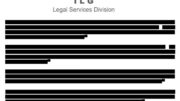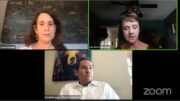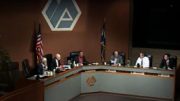By Jeffrey A. Roberts
CFOIC Executive Director
What do you get when you ask three lawyers to discuss the ambiguous aspects of the Colorado Open Records Act and the state’s Sunshine (open meetings) Law?
The answer is not four opinions.
What you get is solid, clarifying agreement on how to respond to certain questions and respectful disagreement on how to answer others. That’s what those attending the Colorado Press Association’s annual convention Saturday took away from an informative panel presented by the Colorado Freedom of Information Coalition.
It was so informative, we think it’s worth watching on video both for newsrooms and governments around the state. Engaged members of the public – anyone who requests public records or follows his or her city council, county commission or school board – also will find it worthwhile.
We titled the panel “Black/White & Gray: Exploring the Ambiguities in Colorado’s Open Records Act and Open Meetings Law.”
Our experts: CFOIC President Steve Zansberg, a media-law attorney who represents the press association, Colorado Broadcasters Association and several media organizations; Geoff Wilson, general counsel for the Colorado Municipal League; and Kendra Carberry, a municipal-law attorney who represents several local governments in Colorado.
Some highlights from a wide-ranging discussion on topics ranging from the cost of records to email “meetings” involving members of a public body:
All three panelists agreed that governments in Colorado have a “duty to redact” confidential information from documents and should release those portions that contain public information. As a Conifer resident found out in 2013, governments sometimes withhold an entire document if it contains, say, a Social Security number.
“There’s a (Colorado) Court of Appeals decision that basically says we have a duty to redact,” Wilson confirmed.
There was disagreement, however, on whether governments in Colorado must release electronic data in its “native” format – as a database table, for instance, rather than a pdf. Carberry said the law doesn’t require it.
“The only reason for turning over a database in native form would be, obviously, to make it easier for someone else to manipulate it. But I don’t think that’s our job under the open records act,” she said. “…The database is like a file cabinet. You all have a right to see the files in the file cabinet but not the file cabinet. We don’t just drop off the file cabinet at your office to make it easier for you to pull out the files.”
Zansberg responded: “I believe the public is entitled to see the records the government maintains including the filing cabinet system in which they are maintained. Not merely the files within the cabinet. How are things categorized within the filing cabinet? Are they defined as personnel files? Are they defined as something else?
“The public is entitled to know how the government maintains its data and the General Assembly has made it clear that includes the electronic versions of that data.”
Thank you to CFOIC Vice President John Fosholt for recording the presentation so that we can make it available here.
Follow the Colorado Freedom of Information Coalition on Twitter @CoFOIC. Like CFOIC’s Facebook page. Do you appreciate the information and resources provided by CFOIC? Please consider making a tax-deductible donation.




